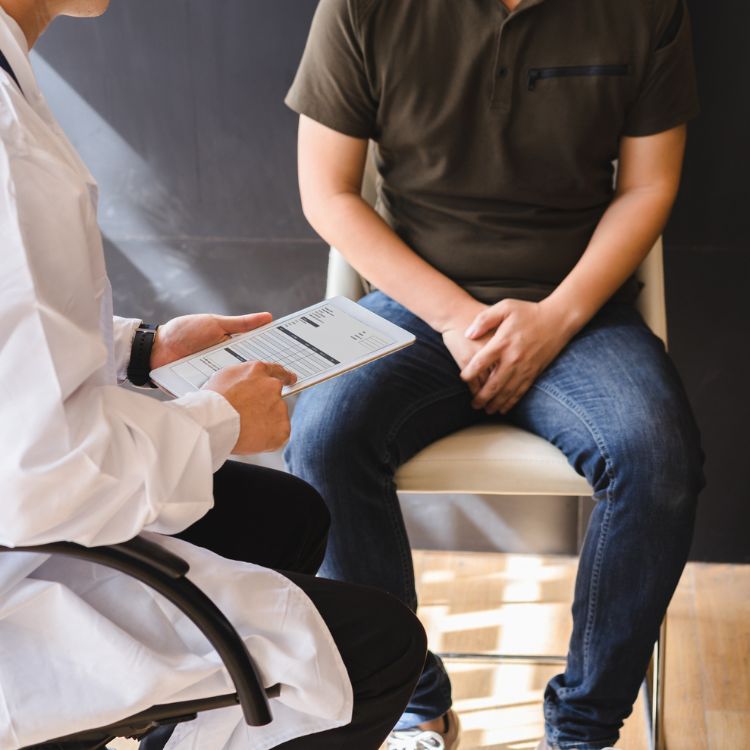Common Causes of Testicular Pain
Testicular pain can arise from various causes, ranging from minor injuries to more serious medical conditions. Some common causes include:
- Infection: One of the most common causes of testicular pain is epididymitis, an infection of the epididymis (the tube behind the testicle). It’s often caused by sexually transmitted infections (STIs) like chlamydia or gonorrhea, or by urinary tract infections (UTIs). Infections can lead to swelling, pain, and redness in the testicle.
- Testicular Torsion: Testicular torsion is a medical emergency. It occurs when the spermatic cord, which provides blood to the testicle, twists and cuts off blood flow. This causes sudden, severe pain and swelling, and requires immediate treatment to prevent permanent damage.
- Inguinal Hernia: An inguinal hernia occurs when part of the intestine pushes through a weak spot in the abdominal muscles, often near the groin. This can cause discomfort or pain that may radiate to the testicles.
- Trauma or Injury: A blow to the testicles, whether from an accident or during physical activity, can cause temporary pain or more significant injury. Though painful, most injuries heal with time, but it’s important to monitor the pain for any signs of complications.
- Varicocele: A varicocele is a swelling of veins within the scrotum, which can lead to aching or discomfort. It’s similar to varicose veins but occurs in the scrotal area. While it’s usually painless, in some cases, it can cause persistent discomfort.
- Kidney Stones: Although kidney stones are typically felt in the lower back or abdomen, the pain can sometimes radiate down to the testicles. This can lead to discomfort or a dull ache in the groin area.
- Chronic Orchialgia: Chronic orchialgia refers to long-term testicular pain that persists even after any initial causes have been treated. The exact cause may be unclear, but it can stem from nerve irritation or inflammation in the scrotum.
When to Seek Medical Attention
While some instances of testicular pain may resolve on their own, it’s essential to be aware of warning signs that require immediate medical attention:
- Sudden, severe pain or swelling
- Pain accompanied by nausea or vomiting
- Pain that lasts longer than a few days or worsens over time
- Redness or warmth in the scrotum
- A visible lump or mass in the testicle
- Difficulty urinating or blood in the urine
If you experience any of these symptoms, it’s crucial to seek medical care right away to rule out serious conditions like testicular torsion or an infection that may require urgent treatment.
How Testicular Pain is Diagnosed
A healthcare provider will begin by taking a detailed medical history and performing a physical examination. They may also use imaging tests, such as an ultrasound, to assess the health of the testicles and surrounding structures. If an infection is suspected, a urine test or swab may be done to identify any bacterial or viral infections.
In some cases, blood tests may be necessary to check for signs of infection or other underlying issues. Depending on the diagnosis, your doctor may recommend further tests to determine the cause of the pain and create a personalized treatment plan.
Treatment Options for Testicular Pain
Treatment for testicular pain depends on the underlying cause. Some common treatments include:
- Antibiotics: If an infection is the cause, antibiotics or antiviral medications may be prescribed to treat the infection and relieve the pain.
- Pain Relief: Over-the-counter pain relievers such as ibuprofen or acetaminophen can help alleviate discomfort. In some cases, your doctor may prescribe stronger pain medications.
- Surgical Intervention: In cases of testicular torsion or severe trauma, surgery may be needed to correct the issue. For conditions like varicoceles, surgery may be an option if the pain persists.
- Ice and Rest: Applying an ice pack to the scrotum and resting can help reduce swelling and pain, particularly for injuries or trauma. Avoiding strenuous activities is also recommended during recovery.
- Supportive Garments: Wearing supportive underwear or a jockstrap can provide comfort and reduce strain on the testicles, especially for conditions like orchialgia or varicoceles.
Preventing Testicular Pain
While not all cases of testicular pain can be prevented, there are steps you can take to reduce the risk of developing it. Practicing safe sex is essential in preventing infections that can lead to pain in the testicles. Wearing protective gear during sports or physical activities helps shield the testicles from injury, reducing the likelihood of trauma. If you notice any unusual symptoms or discomfort in the testicles, seeking prompt medical attention can ensure that any underlying issues are addressed early. Regular self-exams are also important for monitoring changes in the testicles, such as lumps or swelling, which may signal a problem. By being proactive about your health and taking these precautions, you can lower your chances of experiencing testicular pain.


